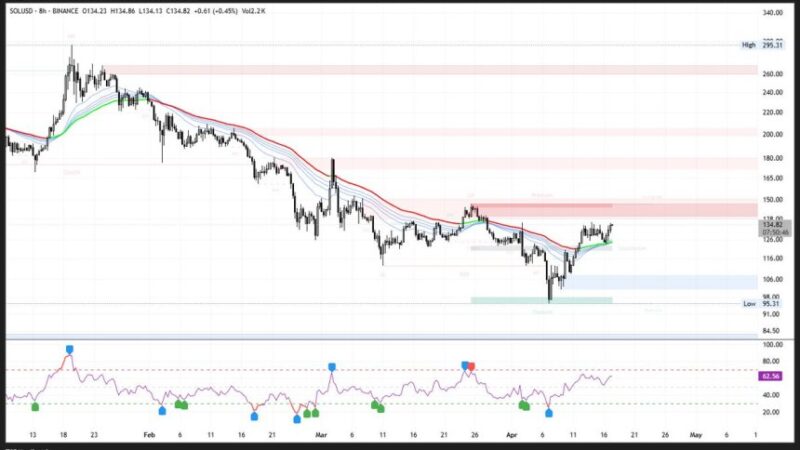Chinese Local Governments Consider Selling Seized Crypto Amid Trading Ban

Local governments in China are exploring ways to liquidate seized crypto, navigating a legal gray area created by the country’s strict ban on crypto trading and exchanges.
According to an April 16 report by Reuters, the absence of clear regulations on handling confiscated digital assets has led to inconsistent practices and raised concerns over transparency and corruption.
EXPLORE: Best New Cryptocurrencies to Invest in 2025
Chinese Authorities Use Private Firms to Sell Seized Crypto Offshore
Citing court and transaction records, Reuters revealed that some local authorities have turned to private firms to sell seized crypto holdings in offshore markets. They then convert them into cash to bolster public finances.
These efforts have reportedly generated significant income. By the end of 2023, local governments collectively held around 15,000 Bitcoin (BTC), worth roughly $1.4 billion.
China is currently estimated to hold about 194,000 BTC valued at $16 billion. This makes it the world’s second-largest national Bitcoin holder, trailing only the United States, according to Bitbo data.
Chen Shi, a professor at Zhongnan University of Economics and Law, told Reuters that the current approach is a “makeshift solution” and not fully in compliance with China’s blanket crypto ban.
CNBC:
CHINA WANTS BITCOIN
This flips the entire game.When one of the world’s biggest economies starts buying $BTC…
You think $109K is the top? Think again. pic.twitter.com/TUH71xx8tC
— Merlijn The Trader (@MerlijnTrader) April 15, 2025
The issue is further complicated by a rise in crypto-related crimes across the country, including fraud, illegal gambling, and money laundering. In 2024 alone, more than 3,000 individuals were prosecuted for crypto-related money laundering activities.
Legal experts and industry insiders have proposed alternative strategies for managing the assets. Shenzhen-based lawyer Guo Zhihao suggested that the People’s Bank of China take over responsibility for seized crypto and consider selling it abroad or converting it into a national reserve.
Ru Haiyang, co-CEO of Hong Kong-based exchange HashKey, supported the idea, noting that China could follow the US example of using forfeited Bitcoin as a strategic asset.
Some have also floated the idea of establishing a sovereign crypto fund in Hong Kong, where crypto trading is legally permitted. The debate comes as US–China tensions rise and Donald Trump moves to tighten oversight of stablecoins while encouraging crypto innovation.
EXPLORE: 10 Best AI Crypto Coins to Invest in 2025
Chinese Citizens Use Offshore Exchanges to Trade Crypto
Despite a nationwide ban on crypto trading and mining in recent years, many Chinese citizens continue to access digital currencies through offshore exchanges, peer-to-peer platforms, and VPNs. These workarounds have made enforcement more complex.
As tensions grow over how seized cryptocurrencies should be handled, discussions among policymakers intensify. Legal experts suggest that the lack of clear national guidelines has led to inconsistent practices and increased the risk of mismanagement or corruption.
DISCOVER: Best Meme Coin ICOs to Invest in April 2025
Join The 99Bitcoins News Discord Here For The Latest Market Updates
Key Takeaways
- Chinese local governments are using private firms to sell seized crypto offshore, raising concerns about transparency and legal consistency.
- China holds an estimated 194,000 BTC, but lacks clear national guidelines on managing confiscated digital assets.
- Legal experts are calling for centralized oversight or a sovereign crypto fund as crypto-related crime and enforcement challenges rise.
The post Chinese Local Governments Consider Selling Seized Crypto Amid Trading Ban appeared first on 99Bitcoins.


